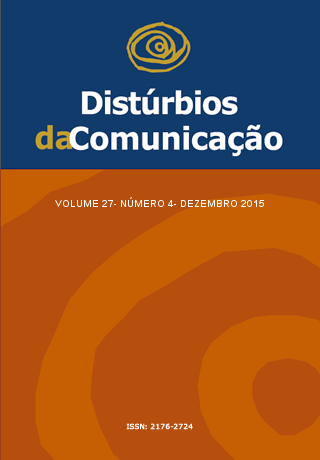Hearing health in Brazil: quantitative analysis of the duration of the National Hearing Health Care Policy
Keywords:
Audiology, Hearing loss, Hearing aids, Unified Health System, Public health policeAbstract
Introduction: New policies were adopted, over time, from the creation of the Sistema Único de Saúde, aiming to improve the actions of hearing health and the establishment of a network of care to those who have some kind of hearing impairment. The institution of the National Policy of Attention to Hearing Health in 2004, revoked by the current plan Viver Sem Limite, was a major landmark in the area, attaining great achievements, but numerous challenges. Purpose: To describe the network of attention to the hearing health in Brazil, specifically in São Paulo, through data collected in an information system. Methods: Data collection services and procedures were conducted at the SUS Department of Information website - DATASUS. After collection, the organization was held and the descriptive analysis of production procedures involving the hearing health were registered by the national authorities and, specifically, in the city of São Paulo. Results: The reference centers were territorially-distributed unevenly, both in national character, as local. There was a growing granting of individual hearing aids and cochlear implants, but the amount of procedures to ensure the effective use and the full development of individuals, through the care longitudinality were below expectations. Conclusion: Hearing health is the government’s priority agenda within the macro policy of person with disabilities. The time is ripe for further discussions and directions of actions, so that actually occur the necessary and urgent inclusions.Downloads
Metrics
Downloads
Published
Issue
Section
License
Copyright (c) 2015 Gislene Inoue Vieira, Beatriz De Castro Andrade Mendes, Marina Morettin Zupelari, Isabel Maria Teixeira Bicudo Pereira

This work is licensed under a Creative Commons Attribution 4.0 International License.









